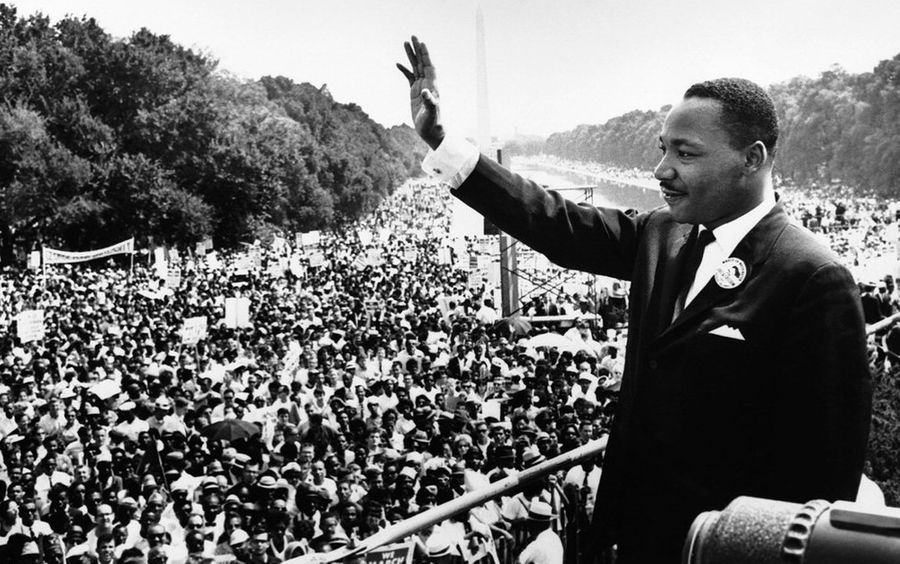"Keeping the Dream Alive" Observance to Take Place on Feb. 8

The University of Hartford observes the birthday, life, and achievements of civil rights leader Dr. Martin Luther King Jr., who was born January 15, 1929, and was killed, at the age of 39, by an assassin’s bullet on April 4, 1968. A proponent of nonviolence and civil disobedience, King became the most visible spokesperson and leader in the American Civil Rights Movement from 1955 to 1968. A central theme of his thoughts, speeches, and actions was his pursuit of the Beloved Community or justice for all people.
King spoke of his concept of the Beloved Community in 1959 during a speech in Hartford. The University of Hartford invited him that year to deliver its Alexander S. Keller Memorial Fund Lecture at Bushnell Memorial Hall. In the speech, titled “The Future of Integration,” King urged attendees to not turn a blind eye to the unequal treatment of their fellow Americans. He spoke of three types of love: eros, “a sort of aesthetic of romantic love”; philia, “affection between friends”; and agape, “understanding, redeeming goodwill for all.” The core value for King’s Beloved Community was agape love. King continued his quest for justice and the Beloved Community until the day of his death in Memphis, Tennessee, where he planned to support a sanitation workers’ strike.The year 1959 was not King’s first time in Connecticut. When he was 15 years old, he came to Simsbury, Connecticut, in the summer to pick tobacco to earn money to attend Morehouse College. While in our state, he experienced life without segregation for the first time. He wrote several letters to his mother marveling at the difference in lifestyle. Later, in his autobiography, he wrote: “after that summer in Connecticut, it was a bitter feeling going back to segregation. It was hard to understand…”Learn more about King’s time in Simsbury and its impact on his life’s work on the Simsbury Public Library website. After a decade of research and fundraising by Simsbury High School students, a memorial to King was installed on the library grounds in 2021. Peter McLean, a fine artist and Professor Emeritus of Fine Arts in the Hartford Art School, helped design the memorial. Also in 2021, the Town of Simsbury voted to permanently protect the site of the tobacco farm where King and others worked.For the 17th consecutive year, the University of Hartford will host its annual "Keeping the Dream Alive" observance on Tuesday, Feb. 8, virtually, from noon to 1:15 p.m. This year’s theme is The Imperative of the Beloved Community. Yamiche Alcindor is this year’s speaker. Alcindor will become a Washington correspondent for NBC News in March. She is moderator of the PBS political roundtable Washington Week and, until recently, was White House correspondent for PBS NewsHour. She has been a political contributor for NBC News and MSNBC since 2016. Her reporting often focuses on civil rights and inequality.In addition to Alcindor’s presentation, the program will include remarks by University President Gregory Woodward, music by alumna Jolie Rocke ’89, and a presentation of the University’s inaugural Beloved Community Awards to recognize students, alumni, faculty, staff, and local community members whose contributions positively affect the campus community.The 2022 Dr. Martin Luther King program is a collaboration between the Office of Diversity and Community Engagement and the Alumni Board of Directors’ Alumni of Color Task Force. This program is open to all. Please register and join us.
University Resources on Dr. Martin Luther King and Coretta Scott King:The Civil Rights History Project: Survey of Collections and Repositories (Lectures by Martin Luther King Jr. and Coretta Scott King in Hartford, Conn.)
King’s speech and all Keller Lectures letters, memos, programs, press releases, newspaper clippings, transcripts, and recordings, including Q&A sessions, are digitized and available for researcher use in the University’s Harrison Libraries.